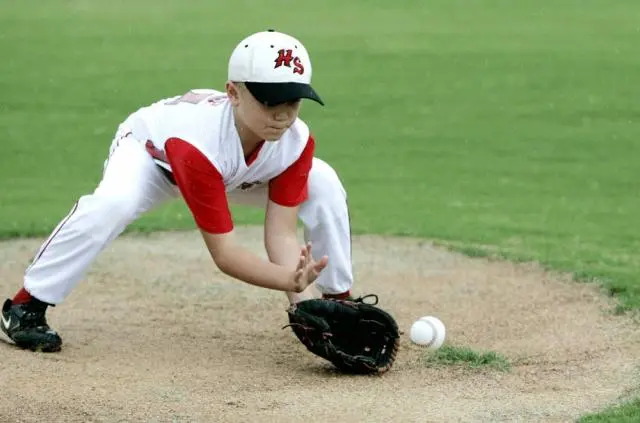
Apr 26, 2011 • 5 min read
Reinforce Competition With The Right Drills: Baseball and Softball Practice Ideas
Posted in:
Challenging players to always compete is a lot to ask of young athletes who just want to have fun, so how do you do that? By feeding their competitive appetites with a healthy and balanced diet of fun and competitive activities. I incorporate winning and losing into the process but I make sure my players know that I value passion over victories.
And because I coach baseball in a developmental league, I prioritize correctness. But a commitment to correctness can be tedious. So I assign competitive stakes to the learning exercises so that correctness pays off for the players in the form of a well earned victory or a well fought defeat. Without a competitive mindset, it’s difficult to engage, to care, or to strive to improve. Correctness leads to improvement, improvement leads to success, and success leads to satisfaction. Competition drives the process.
My healthy and balanced diet of competitions provides plenty of opportunities for all of my players to outdo something: a new challenge, a previous individual or team best, the clock, an opposing group, a well-matched teammate. No one wins them all. And the only way to lose them all is by failing to ever engage, by failing to compete.
It’s important to experience competition in all its forms: us against them, me against you, me against me, me against the clock. And to confront the unavoidable range of emotionally charged features inherent in all competition: collaboration & loneliness, satisfaction & failure, urgency & composure, struggle & recovery. I structure the challenges so that the win itself feels less important than the pursuit of the win. I don’t expect my players not to want to win. I know they want to win; that’s normal. I just don’t want them focused only on something they can’t entirely control.
Here is a sample set of competitive challenges from a recent baseball practice (12 players) where competition played out in various forms:
- Quick Toss [aka “Pitchers & Catchers”] (Two teams, 6 on 6): Our full team forms a large circle around home plate. Every odd player around the circle is on one team, so that every player in the circle stands between two opponents. This is a game of focused hot potato. It emphasizes speed, accuracy, alertness, and an important defensive skill — the controlled infield/underhand toss. An errant toss or a drop costs that player’s team a point. We play until one team has 5 points. The full circle format is a fun way to compete while still feeling part of the larger team, and it’s a great way to kick off drills for the day. To add levity, one team turns their hats around, hence “Pitchers vs. Catchers”.
- Four Corners (Whole team against itself): The team forms four corners of 3 players each, about 30 feet apart. A ball is thrown from corner to corner, quickly, firmly and accurately. After a catch, pivot, and throw, the player goes to the end of his line. The entire team is competing against itself and its previous streak of consecutive throws without a drop.
- Knock-Out (Four teams, 3 on 3 on 3 on 3): Each of the four corners now forms a small team. The game of rotational catch continues, like Four Corners, but now players are knocked out for an errant throw or a drop. The last corner to have a player standing is the winning team. Throw it hard, just throw it on target.
- Foot Race (1 on 1): It is hard to think of a purer competition in sports than an old-fashioned foot race — you against me. I try to match runners up to create very close races. I learn more about my players from this drill than almost any other.
- Base Running (Personal Best): A stopwatch is required — something every coach should have at every practice of every sport. This is one of many skill-specific competitions that involves no opponent. Personal Best competitions are uniquely valuable.
- Paired Grounders (Six teams of 2): Players pair up and feed ground balls to one another. The first pair to field 10 clean grounders per player wins. Paired competitions are great for forging new 1-to-1 friendships, so make sure to constantly mix up the pairings.
- Scrimmage (Three teams of 4): One team bats, two teams co-mingle to play the field. Then rotate. This is a more efficient match-up than 6 on 6 and keeps the competitive combinations dynamic. The focus on the winner/loser is lessened without diminishing the competitive spirit.
Do you have competitive drills that you use that keep players engaged in learning? Do you find the winning and losing of these competitions make success and failure more manageable for young players on game day?
 Bruce Reed is a youth sports coach, writer, educator, and father of two. He has coached high school and Little League baseball, youth soccer, basketball, and football and is currently the regional director of Compass Prep.
Bruce Reed is a youth sports coach, writer, educator, and father of two. He has coached high school and Little League baseball, youth soccer, basketball, and football and is currently the regional director of Compass Prep.

